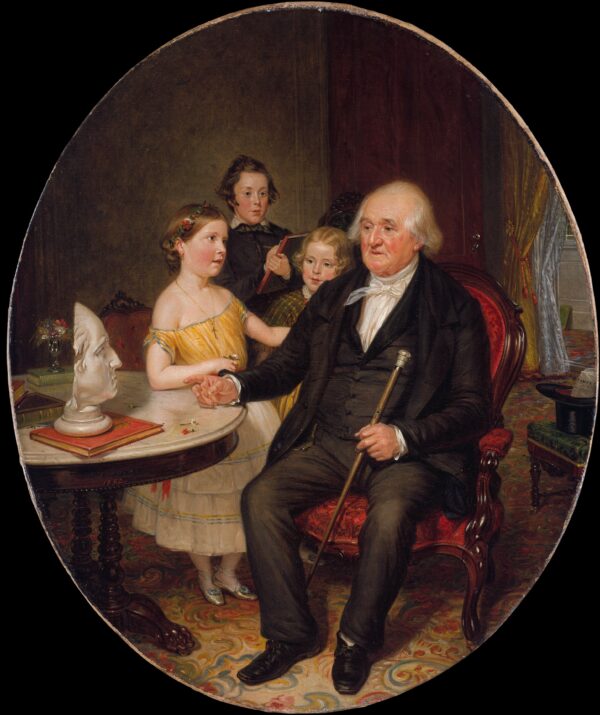Lessons For and From Old and Young
It happened again this past Tuesday. I had a tech question and asked a young Notgrass History team member for help. When he kindly gave me an answer, I felt very silly.
I usually work on a desktop computer, but I keep a laptop in my cubicle at headquarters. Sometimes I take it with me when I go out of town. I used to travel with my laptop almost every time I was gone, but I rarely do that anymore. Now I try hard to leave my work behind when we travel. It has been a wonderful change!
Now I will bravely tell you the story of my tech question on Tuesday. When I use my laptop, I use a separate keyboard that makes working on a laptop more comfortable. The last handful of times that I have used the laptop, that keyboard hasn’t worked. I assumed that perhaps it needed a battery or something, so I asked that nice young Notgrass History team member to check it out.
In a couple of minutes, he told me the problem. He turned the keyboard over and showed me the on/off switch and told me that the keyboard was turned off. You can imagine my embarrassment.
Yes, I was embarrassed, but I was also quite amused. When you make as many silly mistakes as I do, you get rather used to it. I have actually been known as a bit of an amusing klutz since I was in high school. Even if you don’t usually click on past blog post links that I share, you should definitely read “Was My Face Red!” from 2014. You’ll see what I mean.
However, on Tuesday I had a eureka moment almost immediately. This is the gist of it: While it is true that I can be something of a technological dinosaur sometimes, it is also true that my many years have taught me many things that a younger person cannot know yet.
If I may humbly say so, this is the reason a church’s elders are to be older and why Paul did not tell Titus to tell the younger women to teach the older women, but the other way around.
Older women likewise are to be
reverent in their behavior, not malicious gossips
nor enslaved to much wine, teaching what is good,
so that they may encourage the young women
to love their husbands, to love their children,
to be sensible, pure, workers at home, kind,
being subject to their own husbands,
so that the word of God will not be dishonored.
Titus 2:3-5
First Timothy has sweet instructions about how the young preacher Timothy was to behave toward people of different ages. Paul told him:
Do not sharply rebuke an older man,
but rather appeal to him as a father,
to the younger men as brothers,
the older women as mothers,
and the younger women as sisters, in all purity.
1 Timothy 5:1-2
Obviously young Timothy would sometimes have things he needed to teach older people, but he was to do so with respect and kindness. He was to teach younger people with respect and kindness, too.
I think it is tempting for young people to think older people are silly—or even senile—for not understanding technology. It is also tempting for older people to shake their heads at what younger people don’t know. I encourage you to help your children realize the strengths of people of different ages and to respect people of all ages. If your children roll their eyes at what their grandparents say—or at what you say—that seems out of date or silly to them, help them to see what you and your parents know that they don’t know yet. It is often tragic when people of any age disrespect and reject the wisdom of their elders when they could instead learn lessons they need, perhaps things that would help them avoid devastating consequences.
I think I have shared this wonderful 1852 portrait before, but I think it is a beautiful illustration of these ideas.

Great-Grand-Father’s Tale of the Revolution—
A Portrait of Reverend Zachariah Greene
by William Sidney Mount 1852
Courtesy Metropolitan Museum of Art
Purchase, Morris K. Jesup and Maria DeWitt Jesup Funds,
Gift of George I. Seney and Bequest of Vera Ruth Miller,
by exchange; and Gift of Anita Pohndorff Yates,
in memory of her father, F. G. Pohndorff, 1984
And, wouldn’t I be silly not to ask for help from young team members, even though I might find their solutions rather embarrassing?
These five verses from 1 Peter 5 refer to churches’ elders, but I believe they give perspective about relationships between older people and younger people. This is an important perspective for children growing up in a youth-oriented culture, a culture which tragically gives more credence to what is new than to what is old. This reminds me of Acts 17:21, where we learn that “the Athenians and the foreigners who lived there would spend their time in nothing except telling or hearing something new.” Oftentimes we need to hear something old rather than something new.
So I exhort the elders among you,
as a fellow elder and a witness
of the sufferings of Christ,
as well as a partaker in the glory
that is going to be revealed:
shepherd the flock of God that is among you,
exercising oversight, not under compulsion,
but willingly, as God would have you;
not for shameful gain, but eagerly;
not domineering over those in your charge,
but being examples to the flock.
And when the chief Shepherd appears,
you will receive the unfading crown of glory.
Likewise, you who are younger,
be subject to the elders.
Clothe yourselves, all of you,
with humility toward one another,
for “God opposes the proud
but gives grace to the humble.”
1 Peter 5:1-5

